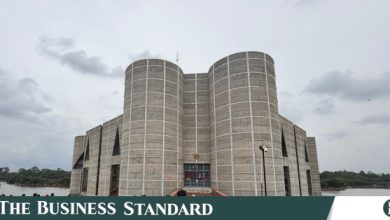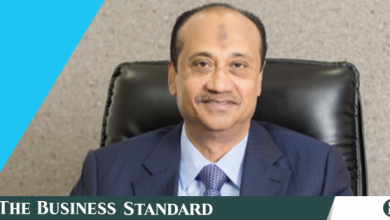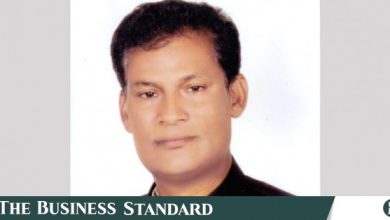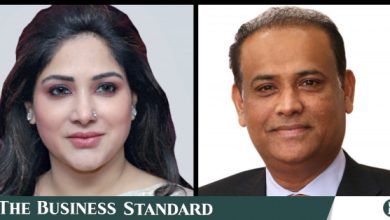Too much public spending may dry up private sector investment: Fahmida Khatun


The government’s growing reliance on bank borrowing to meet the budget deficit may introduce a crowding out effect for the private sector, said Dr Fahmida Khatun, executive director at the Center for Policy Dialogue (CPD).
Banks are already experiencing liquidity shortages, which could lead to higher interest rates on loans, she also said at a post-budget discussion titled “National Budget for FY25 During Economic Turbulence” organised by the Economic Reporters Forum (ERF) in the capital.
The crowding out effect is an economic theory that argues that rising public sector spending drives down or even eliminates private sector spending.
In her keynote speech, Fahmida Khatun said, “A 4.6% deficit has been kept for the upcoming fiscal year’s budget, with 2.5% or Tk1.37 lakh crore expected to be financed through bank loans.
“Moreover, in the current fiscal year, the government has already increased the amount of bank borrowing to Tk1.55 lakh crore. The government’s increasing dependency on bank loans will eventually create a crowding-out effect for the private sector.”
According to the economist, the budget deficit should have been kept lower, considering the pressure of high inflation over the past two years and the country’s limited resources.
Speaking at the discussion, Dr Salehuddin Ahmed, former governor of Bangladesh Bank, said, “The proposed budget does not include any effective steps to resolve the ongoing economic crisis.”
Mentioning that the government has once again relied on indirect taxes, he said, “This approach harms ordinary people more. For instance, a low-income person pays the same VAT on bread as a wealthy person. This is unfair and should be stopped.”
He further added, “The pillars for our development are very unsteady. Among these pillars are banks and the capital market.”
To attract foreign investment, the former governor emphasised the need to make Bangladesh more appealing to international investors.
Mohammad Ali Khokon, president of the Bangladesh Textile Mills Association (BTMA), expressed concern over the difficulty in obtaining loans from banks.
Recounting a recent incident, he said, “No loans are available from any banks for business purposes.
“I recently went to a government bank for a loan. A senior official there informed me that they don’t have enough funds to provide large loans because most of the money is now being directed into bonds.”
The BTMA president further said, “For the country’s transition to a middle-income nation, substantial investment is necessary.
“The government has established economic zones but hasn’t provided adequate water supply. Moreover, the budget has imposed duties on machinery imports for setting up industries there, and banks lack funds. This hampers both local and foreign investment.”
Addressing the issue of rising default loans, Khokon said, “Loans that are fictitious or that are unlikely to be recovered are default loans. On the other hand, loans from businesses struggling to pay instalments due to factors like the Russia-Ukraine war or the Covid-19 pandemic are non-performing loans.”
He urged banks to stop granting loans that are likely to default and called for government policy support to reduce non-performing loans.
Khokon also criticised the National Board of Revenue (NBR) for not considering business sector demands in tax policy formulation. He said sectors like leather and jute are suffering due to poor policies.
He further blamed the government’s fuel import strategy for the declining foreign reserves, explaining that fuel purchased in dollars is sold for taka, which is then converted back to dollars for the power companies. “So, how will the reserve increase?”
AK Enamul Haque, professor of economics at East West University, said, “The government is talking about foreign investment, however, stability in the value of the currency has not been achieved to attract investment.
“Instead, there is concern over a foreign currency crisis. If investors cannot take profits abroad, they may refrain from investing in the country.”
He further said, “There is no ministry to look after the country’s industries. There is an industries minister who oversees only government industries. There is a Ministry of Commerce and its minister looks after private businesses and trades.”
He also demanded reform of the country’s banking sector.
Dr Monzur Hossain, research director of the Bangladesh Institution of Development Studies, said, “The finance minister, during his budget speech, said he considers Bangladesh Bank’s monetary policy as sufficient for controlling inflation.
“However, a large part of the country’s money supply is through the informal sector. So, monetary policy alone is insufficient to control inflation.
“The government is phasing out fuel subsidies as per IMF recommendations. This increases the price of fuel which directly contributes to the increase in inflation. Therefore, the government should find alternative ways to reduce the subsidy without increasing the price of fuel.”




